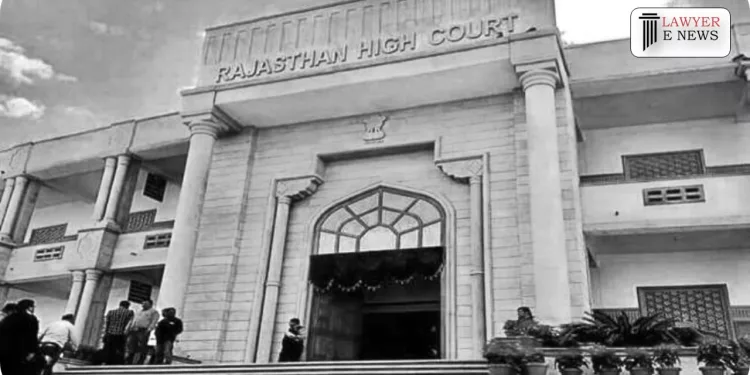FAILURE TO ESTABLISH IDENTIFICATION AND PROCEDURAL DEFECTS: ACQUITTAL IN DACOITY CASE : RAJ. HC

In a significant judgment delivered, the Rajasthan High Court pronounced a verdict emphasizing the importance of proper identification procedures and highlighting the detrimental impact of procedural defects in criminal cases. The bench, headed by Justice Farjand Ali, acquitted the accused due to the prosecution’s failure to establish identification beyond a reasonable doubt and the presence of significant procedural lapses.
The judgment, based on Sections 378, 383, 390, 391, and 395 of the Indian Penal Code, addressed several key aspects, including the reliability of identification, the burden of proof on the prosecution, and the standards for conviction based on circumstantial evidence.
Justice Ali, in the landmark ruling, stated, “Witnesses identifying accused for the first time in court without prior identification cannot be relied upon without corroboration. The doctrine of prudence necessitates a careful evaluation of factors determining the reliability of identification. Procedural defects and laches in investigation, such as inordinate delays and inconsistencies in testimonies, cast doubt on the veracity of the identification.”
The court further clarified the cardinal principles of appreciating circumstantial evidence, emphasizing that each link in the chain of circumstances must be established beyond a reasonable doubt. The circumstances should unerringly point towards the guilt of the accused, leaving no room for any other reasonable hypothesis.
Regarding procedural defects and laches in the investigation process, the judgment noted suspicions of planted or false recovery, defects in recording recovery memos, lack of independent witnesses, and doubts regarding the genuineness of evidence. The court held that such deficiencies hinder the prosecution’s ability to discharge the burden of proof, rendering the conviction unsustainable.
The judgment also delved into the applicability of theft, extortion, robbery, and dacoity charges, highlighting the necessity to establish specific elements for each offense. It stressed the distinction between theft and extortion, emphasizing that dispossession by the accused through force or inducement, coupled with the presence of the victim and induced fear, is essential for the offense of robbery. Furthermore, the court ruled that failure to establish the elements of theft, extortion, or robbery renders the charge of dacoity per se illegal, necessitating acquittal.
The verdict, in line with established legal principles, underscored the burden of proof on the prosecution to prove the case beyond a reasonable doubt. It reiterated that the accused’s role is that of a mute spectator and that proving innocence is not a requirement.
Date of Decision: 02/06/2023
Bhagwat Singh VS State Of Rajasthan.






